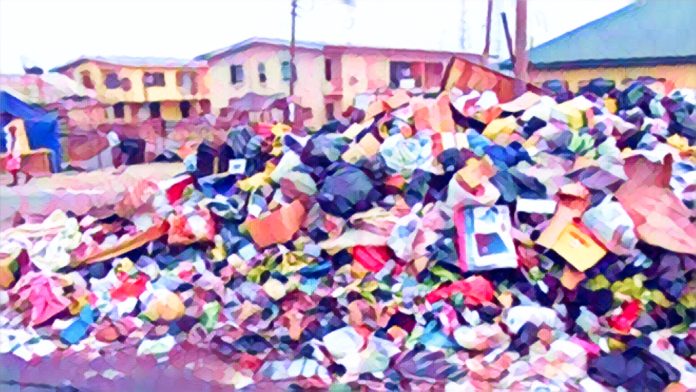KEY POINTS
-
Nigerian cities waste management systems are overwhelmed by population growth and urban sprawl.
-
Lack of infrastructure and enforcement worsens waste problems across Nigeria’s major urban centers.
-
Urgent reforms are needed to improve Nigerian cities waste management and protect public heal.
Due to fast urbanization, population expansion, and inadequate infrastructure, waste management is becoming an increasingly difficult problem in Nigeria, the most populated country in Africa. Even though environmental issues have been addressed, solid waste collection, disposal, and recycling remain problems in a number of large cities. The five Nigerian cities listed below are currently facing significant waste management issues.
1. Lagos
According to the Lagos State rubbish Management Authority (LAWMA), Lagos, the largest metropolis and commercial center of Nigeria, produces more than 13,000 metric tons of rubbish per day. Visible trash mounds spanning highways, canals, and drainages are a result of the city’s dense population, informal settlements, and poor landfill management. In low-income regions, waste collection is frequently sporadic, which leads to illegal dumping and environmental hazards.
The Lagos State Government’s Cleaner Lagos Initiative privatized waste collection, but public involvement and enforcement are still lacking. Plastic pollution continues to endanger marine life and exacerbate flooding because it clogs drainage systems, particularly in coastal areas.
2. Port Harcourt
Once hailed as the “Garden City,” Port Harcourt, the capital of Rivers State, is currently dealing with worsening sanitary conditions. Waste is often disposed of in rivers, road medians, and open areas, particularly in informal communities with no access to government services.
The infrastructure to handle the city’s growing industrial and household garbage has not kept up with the city’s oil-based economy. The lack of functional garbage bins and a coordinated disposal system has made unlawful dumping prevalent, aggravating the health hazards connected with contaminated water sources and poor air quality.
3. Kano
With a population of over 4 million, Kano is the largest city in Northern Nigeria. The city creates more than 3,000 tons of rubbish everyday, much of it ends up in open landfills, roadsides, and water bodies. The Kano State Refuse Management and Sanitation Board (REMASAB) confronts logistical and operational issues, including limited funds, aged equipment, and inadequate garbage collecting workers.
Recycling programs receive little funding, and waste segregation is essentially nonexistent. Inadequate public knowledge and lax sanctions for unlawful dumping exacerbate this issue.
4. Onitsha
Anambra State’s commercial hub, Onitsha, has been listed as one of the world’s most polluted cities in a number of environmental studies. Due in large part to inadequate urban design, lax enforcement, and a growing population, the city faces challenges managing both solid waste and industrial waste.
The city frequently floods as a result of the disposal of plastic and technological debris in streets, rivers, and gutters. Waste has accumulated in residential and commercial locations due to a lack of sustainable waste management infrastructure, such as adequate landfills and recycling facilities.
5. Ibadan
Nigeria’s third-largest city by population is Ibadan, the capital of Oyo State. Ibadan has serious waste management problems, just like many other expanding cities. Particularly in suburban areas, open dumping is common and pickup is irregular. There are major health and environmental issues as a result of the overcrowded and badly maintained city’s primary dumpsite at Awotan.
Additionally, the public generally lacks understanding or education about safe trash disposal. The informal sector plays a big role in waste scavenging, although there is little coordination between these workers and the city’s waste authority.
Conclusion
Nigeria’s waste management crisis is a major threat to public health, economic growth, and sustainable urban development in addition to being an environmental issue. Without quick intervention and a commitment to long-term solutions, cities like Lagos, Port Harcourt, Kano, Onitsha, and Ibadan risk becoming overrun by their own trash. Government, residents, and the corporate sector must work together to address these problems and create metropolitan areas that are healthier, cleaner, and more resilient.



